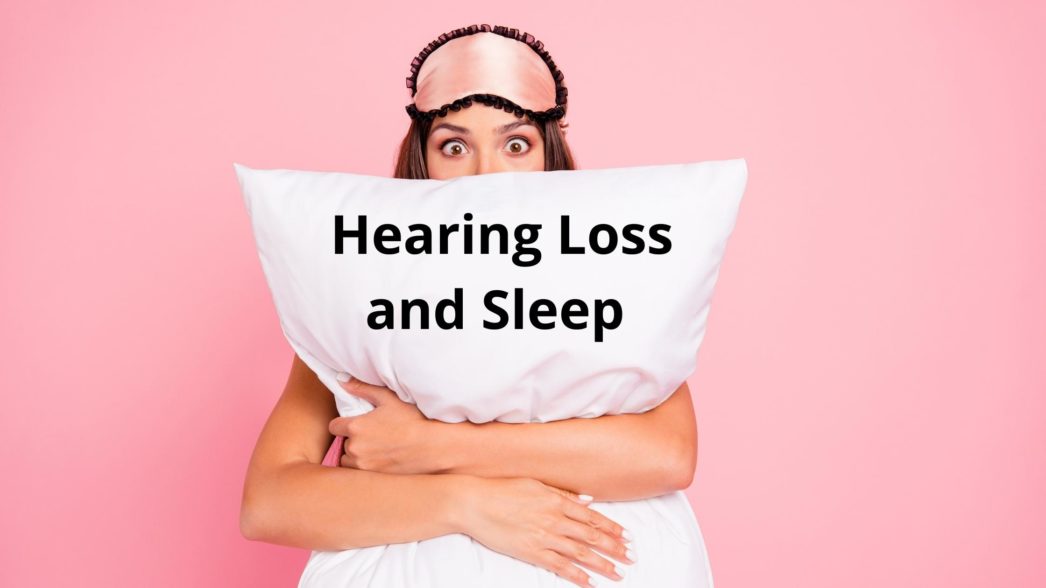Sleep is an essential function of the brain, and researchers have been curious to understand how we are able to turn off our senses in order to rest our consciousness. With the eyes, it is a bit simpler. The phrase “get some shut eye” connects directly with this ability, and our vision is perfectly equipped to facilitate the mind in sleep. The ears, on the other hand, do not close even during sleep, making a quiet resting place helpful for getting rest.
Without the ability to close our ears to stimuli however, they remain subtly active to sound as a first line of defense should an emergency arise. Why, then, is there a connection between hearing loss and insomnia? It would seem that the lack of sonic stimuli provided by hearing loss would actually be an assistant to sound sleep. On the contrary, those who have hearing loss tend to have higher rates of insomnia and other sleep troubles. Let’s take a look at some of the research findings on sleep and hearing loss to better understand how they are related, as well as what you can do to facilitate sound sleep.
Sleep and Tinnitus
When you think about the connection between hearing and sleep, your mind might go immediately to tinnitus. Indeed, tinnitus is the most common hearing-related cause of sleep disturbances. Those who hear the persistent sounds of tinnitus or ringing in the ears have higher rates of insomnia and other sleep-related conditions. Some people find relief through the use of white noise machines, televisions played at low volume, or ambient music played before sleeping. These sounds seem to have the effect of masking tinnitus symptoms for some people, but they don’t work for everyone. Hearing health professionals can provide more detail on the latest treatments for tinnitus that include sleep-related aids.
Sleep, Hearing Loss, and Insomnia
A recent study asked whether there was an independent relationship between hearing loss and insomnia, apart from the well-known connection with tinnitus. Many people experience both tinnitus and hearing loss at the same time, so it can be difficult to isolate these effects. The study based at Clalit Health Services in Israel engaged with 298 male workers who were exposed to occupational noise. These individuals had audiometric testing as part of their jobs, and they also completed a sleep questionnaire about their ability to fall asleep easily and to stay asleep through the night. The study discovered that, apart from reported levels of tinnitus, hearing loss did have a separate and significant relationship with sleep impairment, including insomnia. This relationship was established regardless of age and the years of exposure to noise in the workplace.
Understanding the Relationship
What might make a person with hearing loss also experience insomnia? This research design was not equipped to understand the relationship, instead looking at the statistical nature of the connection. Past studies have shown that deaf individuals do not have worse sleep outcomes than hearing people, and in some studies the relationship even seemed to be better than those with hearing ability.
Qualitative study suspect that the inability to have audible disturbances of sleep was part of the explanation. When it comes to hearing impairment and sleep ability, other research studies were mixed. Some saw a correlation with old age, which tends to find higher rates of insomnia. Others tracked coffee consumption and found it was to blame for higher rates of insomnia. This new study is informative of the connection, but it does not yet explain why those with hearing loss have higher rates of insomnia. Instead, qualitative studies, interviews, and questionnaires with hearing impaired individuals will be necessary to complete this side of the puzzle.
If you know someone with hearing loss and a sleep impairment such as insomnia, the good news is that your hearing health professional can help find treatment options. Working in conjunction with your physician, the two can come up with some of the ways that people solve insomnia and hearing loss as two aspects of a coordinated health plan. A thorough diagnosis of hearing ability is the first step, and you can also pursue a sleep assessment with your medical provider. Don’t delay getting the help you need!


